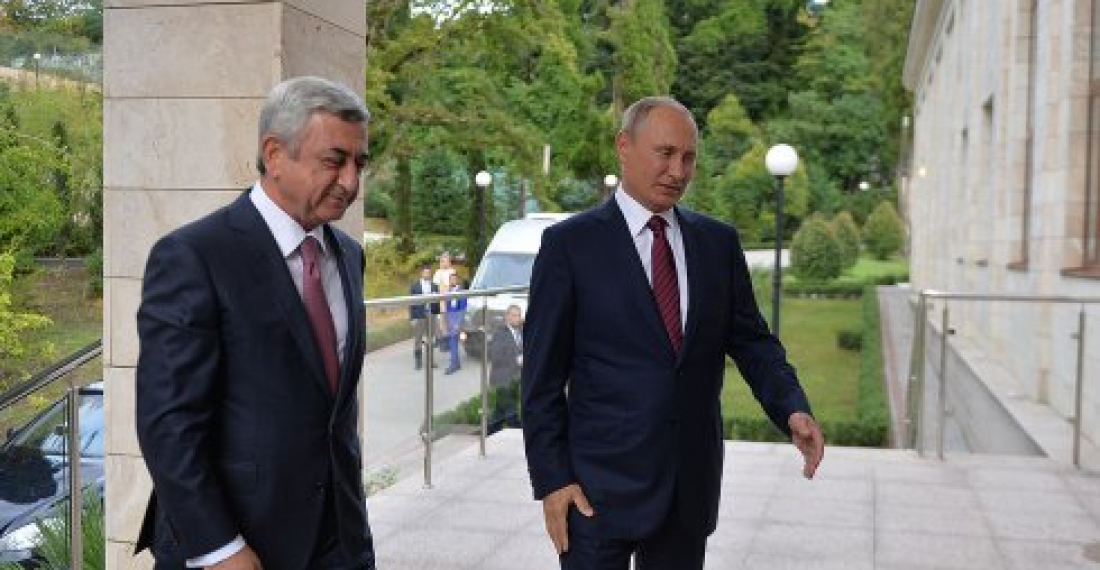President Serzh Sargsyan of Armenia is in Sochi for meetings with his Russian counterpart, Vladimir Putin.
The two presidents exchanged greetings in front of the media before starting substantial discussions. Welcoming the Armenian President, Vladimir Putin said this was the year marking the 25th anniversary since the establishment of diplomatic relations between the two countries, and the 20 anniversary of the signing of the key treaty on friendship and strategic cooperation.
"During this time, relations between Armenia and Russia have been strengthened in a serious way both between sovereign states. We have an intensive political dialogue, we are cooperating on a bilateral basis and in the sphere of economy, and in the sphere of security and military affairs. We actively cooperate within the framework of international organizations and our integration associations. I am very glad to see you and talk about the whole complex of these issues", said president Putin.
In reply President Sargsyan thanked Putin for the invitation to the meeting, and said:
"Armenian-Russian strategic, allied relations are distinguished by constant intensive dialogue at the highest level, broad foreign policy coordination, constructive cooperation on international and regional platforms, fruitful cooperation in the field of security, military and military-technical spheres.
Intensively developing our trade and economic relations. Last year, we had a 15% increase in our turnover. And for six months - almost 24 percent. Permanent communication between governments and parliaments of our countries. Interregional cooperation and cooperation in the humanitarian sphere are constantly developing.
Of course, this is facilitated by constant visits at the highest and highest levels. This year, the President of the Duma of the Russian Federation, the Secretary of the Security Council visited Armenia, I was on an official visit to Moscow, our chairman of the parliament, the Prime Minister. We are waiting for the autumn of the Chairman of the Government of Russia in Armenia, Minister of Foreign Affairs, Minister [of Industry and Trade Denis] Manturov, as part of a large delegation of businessmen and state administrations within the framework of the Second International Forum on Eurasian Cooperation. Just the other day, meetings of the three most important bilateral commissions took place - on military-technical cooperation, on trade-economic and parliamentary cooperation.
In conclusion the Armenian president also thanked his Russian counterpart for Russian support to putting down recent forest fires in Armenia.
source; comonspace.eu with the press service of the president of Russia.






